The Irony of American Strategy
A decade ago, the U.S. immersed itself in the greater Middle East with its wars on Afghanistan and Iraq. Will the current economic scenario force it to turn away from this region?
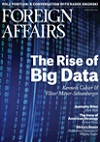 Courtesy: Foreign Affairs
Courtesy: Foreign Affairs
A decade ago, the U.S. immersed itself in the greater Middle East with its wars on Afghanistan and Iraq. Will the current economic scenario force it to turn away from this region?
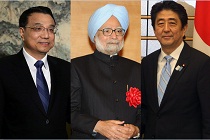 Courtesy: Ministry of External Affairs, India
Courtesy: Ministry of External Affairs, India
While the recent India-Japan Joint Statement contains significant breakthroughs, the China-Pakistan Joint Statement reveals the absence of warmth between India and China. With the current flurry of bilateral exchanges, India is fine-tuning its approach to emerging regional realities, as are others.
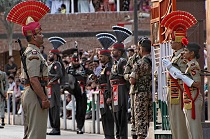 Courtesy: rwoan/Flickr
Courtesy: rwoan/Flickr
Pakistan’s national elections will take place in the backdrop of a troubled economy, severe energy crisis, and frequent terrorist attacks. Can these problems be solved if the next leadership agrees to open its territories for trade and transit purposes between India and Afghanistan?
The military withdrawal of U.S. troops from Afghanistan in 2014 is likely impact both South and Central Asia. Gateway House interviews former U.S. envoy to Afghanistan Karl Eikenberry, who also served as a military officer in Afghanistan, to discuss the challenges and opportunities in post-2014 Afghanistan.
 Courtesy: Pete Souza/The White House
Courtesy: Pete Souza/The White House
The announcement of the Pacific pivot by the U.S. in 2001 has led to several nations making bold political moves. However, the U.S. isn’t yet ready to be a regional protector against China. What does Washington have to do to prepare itself for the Pivot?
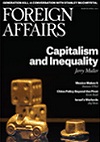 Courtesy:
Courtesy:
Overall, the U.S.-Pakistan alliance hasn't been pleasant. Despite their growing mutual distrust for each other, which has become evident in the past few years, the alliance still continues. Is it worth all the troubles it comes with?
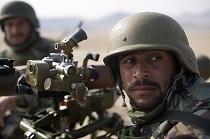 Courtesy: Matanya/WikimediaCommons
Courtesy: Matanya/WikimediaCommons
Since 2002, a large amount of U.S. funds flowing into Afghanistan has been diverted to the Taliban by local strongmen, resulting in a continued presence of the militia. The challenge post-2014 will be to reverse the West’s top-down strategy, creating a grassroots-driven incentive for peace and development.
 Courtesy:
Courtesy:
India’s relations with Islamic nations, many of which are members of the Organisation of Islamic Cooperation (OIC), have become even more prolific over the last decade. While India does not visualise becoming a member of a religious international body, many reasons militate against our formally joining the OIC.
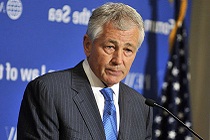 Courtesy: U.S. Department of Defense
Courtesy: U.S. Department of Defense
The nomination of Chuck Hagel for the post of the U.S. Defense Secretary has garnered severe criticism from Israel and the Jewish lobby. Given the geopolitical changes unfolding in the Middle East and the rest of Asia, what will Hagel’s assumption of office mean for Israel, India and the rest of the world?
 Courtesy: Officer/WikimediaCommons
Courtesy: Officer/WikimediaCommons
U.S. Senator John Kerry will officially take office as the Secretary of State, later this month, replacing Hillary Clinton. Given his background of foreign policy, and his proven competency in related matters, what can India and South Asia look forward to, during his term in his new office?